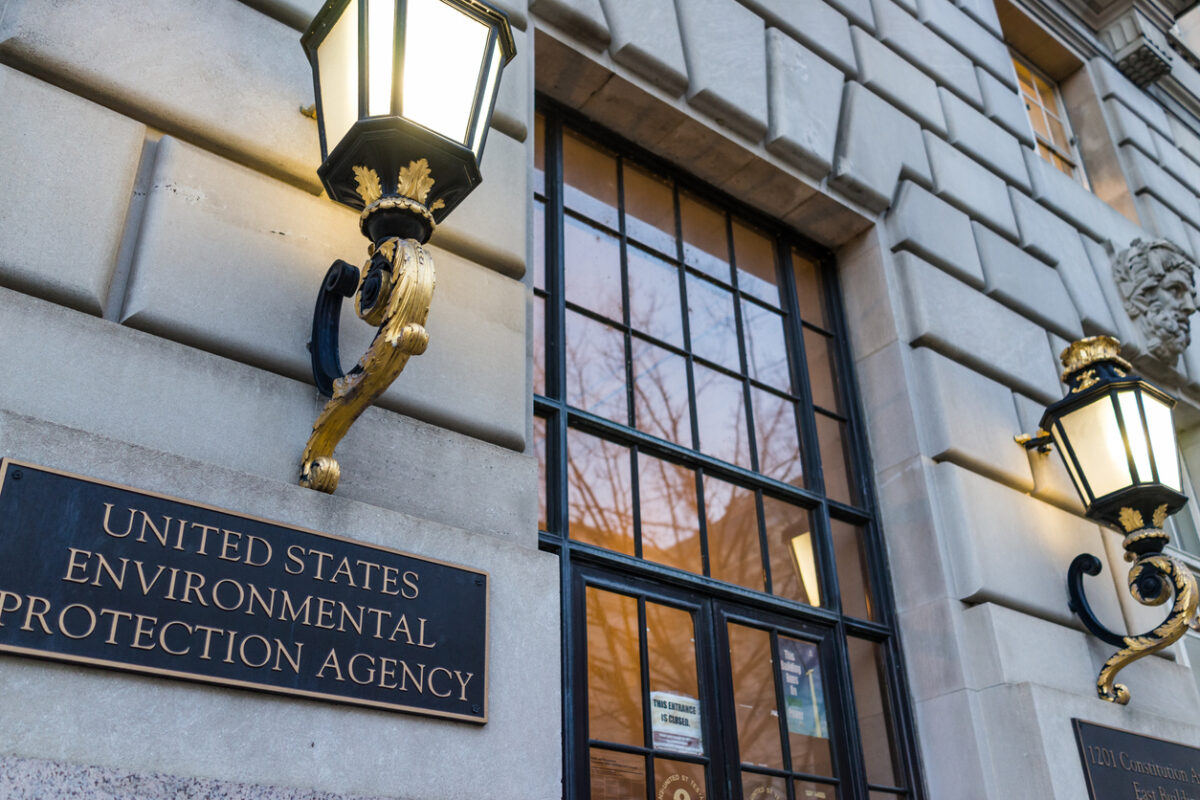Overview:
- The EPA's Chicago office faces major cutbacks, potentially hampering state and local responses to environmental threats in Detroit and Hamtramck.
- Union reps warn that placing 168 EPA environmental justice workers on leave could disrupt grant rollouts in Detroit.
- Union suggested cuts might also slash 200 jobs, or 20% of the workforce, including those addressing local environmental threats.
News that EPA’s Chicago office could face significant cutbacks has unnerved Rev. Sharon Buttry. She’s worried that state and local officials will have fewer resources to respond to environmental threats in Detroit and Hamtramck, where she lives.
Buttry, who volunteers with the grassroots advocacy group Detroit Hamtramck Coalition for Advancing Healthy Environments, helped file a civil rights complaint with state regulators in 2020 over the expansion of a hazardous waste facility in Detroit. This led to a settlement that included a commitment to perform an environmental health assessment in the area with funding from the EPA. She now worries the community will lose this funding as well as the support of EPA staff.
“We’re sad for the people we know who are going to be impacted by this, both at the EPA and in our community, where we don’t have the benefit of their expertise, experience, and resources,” she told Planet Detroit.
Buttry said the area around the Detroit-Hamtramck border deals with many environmental threats, including pollution from US Ecology’s hazardous waste facilities and leaking underground storage tanks, and that workers from EPA’s Region 5 office have shown up to help.
“These folks have come down and visited, toured, they’ve been here for us,” she said.
Union representatives say possible cuts, first reported in the Chicago Tribune, and staff resignations, driven by things like an abrupt end to telework, would significantly impact environmental disaster response in Michigan and enforcement of air quality, drinking water, and hazardous waste rules.
And the placement of 168 EPA environmental justice workers on administrative leave could interfere with the rollout of grants in Detroit even if President Donald Trump’s administration complies with a legal order to lift a freeze on such funding. On Monday, a judge said Trump had continued to defy this order.
Staffing cuts to the Chicago office could eliminate around 200 workers or 20% of the office’s workforce, according to Nicole Cantello, president of the American Federation of Government Employees Local 704, which includes workers in EPA Region 5.
In an email to Planet Detroit, a representative for the EPA Press office said the agency was “unaware of any proposed staffing plans or cuts for (Region 5), or any components of the agency.”
Union officials said cuts could eliminate workers classified as probationary because they’ve been at their jobs for less than a year as well as those doing Diversity, Equity and Inclusion work that the Trump administration has targeted.
Cantello said other employees may have accepted the Trump administration’s “buyout,” which offered pay through the end of September for workers who resign by Feb. 6. A federal judge has paused this program until he decides on its legality. As many as 60,000 federal workers, 2.5% of the federal workforce, have already accepted the buyout, according to Reuters.
“We feel concerned that significant staff will be leaving or be forced out of the Michigan Office,” Cantello said. “That would really hurt the response by EPA to environmental disasters.”
A section of EPA’s Region 5 Emergency Response Branch in Ann Arbor helps respond to disasters like the 2010 Enbridge Line 6B oil spill near Kalamazoo, the Flint drinking water crisis and the Revere Dock collapses in Detroit. Staff members are also deployed to national emergencies like Hurricane Katrina, Hurricane Sandy and last month’s wildfires in Los Angeles.
“The Region 5 emergency response staff are some of the busiest in the nation,” said Brian Kelly, vice president for AFGE Local 704. He warned that losing emergency responders within their one-year probationary period would “have ripple effects for many years to come.”
Cuts to enforcement staff at the Chicago office could also reverberate in Michigan. Cantello said eight staff could be eliminated from air quality enforcement and eight from water quality, which are high numbers for offices with only several dozen staff members.
She added that these cuts contradict EPA Administrator Lee Zeldin’s comments that he wants to return the EPA to its “core mission of conservation.”
“There’s nothing more core than protecting people from pollution that’s already happened,” Cantello said.
A spokesperson for EPA’s national office did not respond to Planet Detroit’s request for comment on these concerns.
In a statement to Planet Detroit, U.S. Rep. Debbie Dingell (D-Ann Arbor) said EPA Region 5 staff have provided crucial support in addressing contaminated sites in southeast Michigan.
“In recent years, we’ve made significant progress cleaning up hazardous sites, getting the lead out of pipes, and protecting clean air and water, and we can’t lose all the work we have done,” she said. “I will fight against these cuts and work with our federal, state, and local partners to address urgent environmental priorities.”
EPA cuts could dismantle environmental justice infrastructure, imperil future staffing
Cuts to the Chicago office could eliminate positions needed to direct environmental justice grants to Michigan communities and imperil staffing at an agency still recovering from a loss of workers during the first Trump administration, union officials say.
$81.7 million in environmental justice funding was granted to projects in Michigan, which was delayed by Trump’s freeze on federal grants. In Detroit, funding was held up for five initiatives set to receive $46.2 million. This includes support for resilience hubs, clean ports and pollution monitoring.
Cantello said it’s not just a matter of unfreezing these grants but having the staff in place to deliver them.
“When you have less staff, the ability to get that money out is hampered,” she said.
learn more
Trump administration targets environmental justice, projects in limbo
After weeks of disruption, the EPA has begun releasing some frozen environmental justice grants, but billions remain uncertain as the Trump administration continues targeting climate and equity programs.
Michigan groups protest Musk and Trump’s ‘ongoing coup’ at Congressional offices
Advocates say they want lawmakers to stand up to the administration’s actions, which they say are unconstitutional and will harm education, public health and the environment.
Kelly said the Ann Arbor office has helped clean up contaminated soil at Belanger Park in River Rouge, which incorporated environmental justice programming like a soil workshop at the Lincoln Park Farmers Market where residents could bring their garden soil in for testing.
He said rolling back environmental justice work would undermine efforts that have helped urban and rural communities deal with problems like leaking underground storage tanks, a lack of septic systems, or lead-based paint in older homes.
“That is a really great community asset that is being taken away,” he said.
AFGE is pushing back on some orders that could diminish agency staff. This includes promises to defend union contracts that include telework for AFGE employees. Charles Ezell, acting director of the U.S. Office of Personnel Management, said telework provisions in union contracts were “likely unlawful and unenforceable.”
The union has also warned employees not to accept the “deferred resignation” offer being promoted Elon Musk, head of the White House’s so-called Department of Government Efficiency, a nongovernmental task force, because “President Trump may not even have the authority to make such an offer, and federal workers who resign may not get paid.”
The White House did not respond to Planet Detroit’s request for comment on the deferred resignation offer.
Union leaders said they fear driving more workers out will damage an agency that only recently started to recover after losing staff in the first Trump term and years of disinvestment.
“Cutting off these new people coming in is going to destroy this future generation that we’re going to need for climate change, environmental cleanup (and) regulation of water, air (and) land,” Kelly said.
This article was updated on Feb. 13 to include comments from the EPA Press Office.



